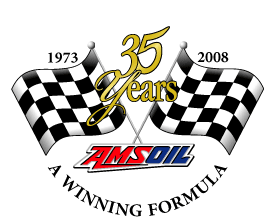What Are Synthetic Lubricants?
Engines, transmissions and other
mechanical systems contain hundreds
of moving parts. Though the metal
surfaces of these parts look smooth,
they are actually full of
microscopic peaks and valleys. When
the peak of one surface touches its
mating surface, it causes damage.
Damage may lead to component failure
or wear. Failure prevention and wear
reduction are the primary functions
of lubrication.
|
|
REFINED OILS
Conventional oils-the oils most
people are familiar with-are refined
from crude oil. Refining is a
process of physically separating
light oil components from heavy
ones.
Crude oil contains millions of
different kinds of molecules. Many
are similar in weight but not in
structure. The refining process
cannot distinguish such molecules,
so a wide assortment of molecules is
present in the finished lubricant
made from crude oil stocks. Some
crude oil molecules are not
beneficial to the lubrication
process. For example, paraffin
causes refined lubricants to thicken
and flow poorly in cold
temperatures. Molecules containing
sulfur, nitrogen and other elements
invite the formation of sludge and
other products of lubricant
breakdown, especially in
high-temperature applications.
Sludge and breakdown products
significantly increase wear rates.
The assorted molecules of refined
lubricants also have different
shapes, making lubricant surfaces
irregular at the molecular level. As
lubricant layers flow across one
another during the lubrication
process, these irregularities create
friction, which consumes power,
reduces efficiency and increases
heat and wear. |
|
SYNTHETIC LUBRICANTS
Synthetic lubricants are chemically
engineered from pure chemicals
rather than refined from crude oil.
That gives them significant
advantages over refined oils.
Pure -
The feedstock's from which
synthetic lubricants are made do not
contain sulfur, nitrogen or other
elements that invite the formation
of sludge and other products of
lubricant breakdown. Synthetic
lubricants can be used in higher
temperatures than refined lubricants
without breaking down. Their
resistance to breakdown also allows
them to be used longer than refined
lubricants can be used. Lubricated
systems stay cleaner and last longer
with synthetic lubricants. Synthetic
lubricants differ from refined oils
in three key ways: synthetics are
pure, their molecular structure is
uniform, and they may be designed to
work in applications in which
refined oils cannot.
Uniform -
The feedstock's from
which synthetic lubricants are made
feature uniform and smooth molecular
structures, which ensures low
friction as lubricant layers slide
across one another. Reduced friction
increases energy throughput for
greater fuel efficiency and power
and reduces heat and wear for longer
equipment life. Molecular uniformity
also helps synthetics resist
thinning in heat and thickening in
cold, which helps them protect
better than refined oils over a
system's operating temperature range
and helps ensure secure sealing.
Field experience has shown that
synthetics can give economic
benefits when used in place of
mineral oils which were working
satisfactorily. The benefits fall in
five general areas:
- Improved
energy efficiency
- Wider
operating temperature range
- Increased
design ratings o Reduced
maintenance
- Better
reliability and safer operation
- A. Jackson, Mechanical
Engineering Transactions
Designable
- Many different kinds
of feedstock's may be used to create
synthetic lubricants, allowing a
synthetic to be designed for
virtually any application. Some
feedstock's are ideal for use in
extremely cold environments. Others
are perfect for use in extreme heat.
Some are extremely safe in
applications in which refined
lubricants pose a fire or explosion
hazard. Refined oils simply do not
offer the design flexibility
synthetics offer.
The design flexibility of synthetics
also allows them to be tailored very
specifically to the needs of
everyday applications, such as
automotive engines, commercial
equipment or much industrial
machinery. That specificity helps
ensure long life and peak power,
performance and fuel economy from
the lubricated system and long
lubricant life. |
|
|
Why Are AMSOIL Synthetics Lubricants
Best? |
|
MOLECULAR ENGINEERING
AMSOIL lubricants are synthesized,
not refined. Refining doesn't remove
critical impurities, and the
lubrication and performance
qualities of refined petroleum
lubricants are limited. AMSOIL
lubricants are impurity-free and
offer superior performance and
greater versatility.
HIGH-TEMPERATURE PROTECTION AND
PERFORMANCE
AMSOIL synthetic lubricants are much
more stable in high temperatures
than refined oils are. Their
superior heat stability reduces the
rates of oil consumption, lubricant
breakdown and lubricant oxidation,
which keeps oil consumption low;
equipment clean, protected and
running right; and extends lubricant
life.
COLD-TEMPERATURE PROTECTION AND
PERFORMANCE
AMSOIL synthetic lubricants remain
fluid in temperatures far below
zero, allowing dependable engine
start-up, fast lubrication,
dependable protection and maximum
fuel economy in severe cold
operations.
INCREASED EFFICIENCY
AMSOIL synthetic lubricants are
superior to refined oils in reducing
friction, helping lubricated systems
use fuel energy for work, not for
overcoming drag. Superior friction
reduction, as well as lower
volatility rates, also helps keep
exhaust emissions low.
LONGER
ENGINE AND EQUIPMENT LIFE
AMSOIL synthetic lubricants' heat
stability and friction-reducing
ability keep wear rates low, which
helps increase the time to first
teardown, increases the interval
between teardowns and increases
overall equipment life.
EXTENDED
LUBRICANT DRAIN INTERVALS
AMSOIL synthetic lubricants offer
eight times the service life offered
by refined lubricants, and sometimes
even more. The long life of AMSOIL
synthetic lubricants reduces costs,
downtime, waste and environmental
damage.
PRODUCT
LINE
AMSOIL manufactures synthetic
lubricants, advanced filtration
systems, fuel additives and coolants
for virtually every commercial,
industrial or automotive
application.
QUALITY
CONTROL
AMSOIL synthetic lubricants are
manufactured from top-quality
synthetic basestocks and performance
additives according to a stringent
quality control protocol in
computer-controlled AMSOIL
manufacturing facilities. AMSOIL
synthetic lubricants may be counted
on to deliver the same top quality
performance and protection every
time they are used, no matter where
in the world they are purchased.
EXPERIENCE
AMSOIL formulated the first API
synthetic motor oil in the world and
has more experience formulating
synthetic lubricants than any other
manufacturer in the world. AMSOIL
leads the industry in product
quality and innovation.
|
|
|
|
|
|



